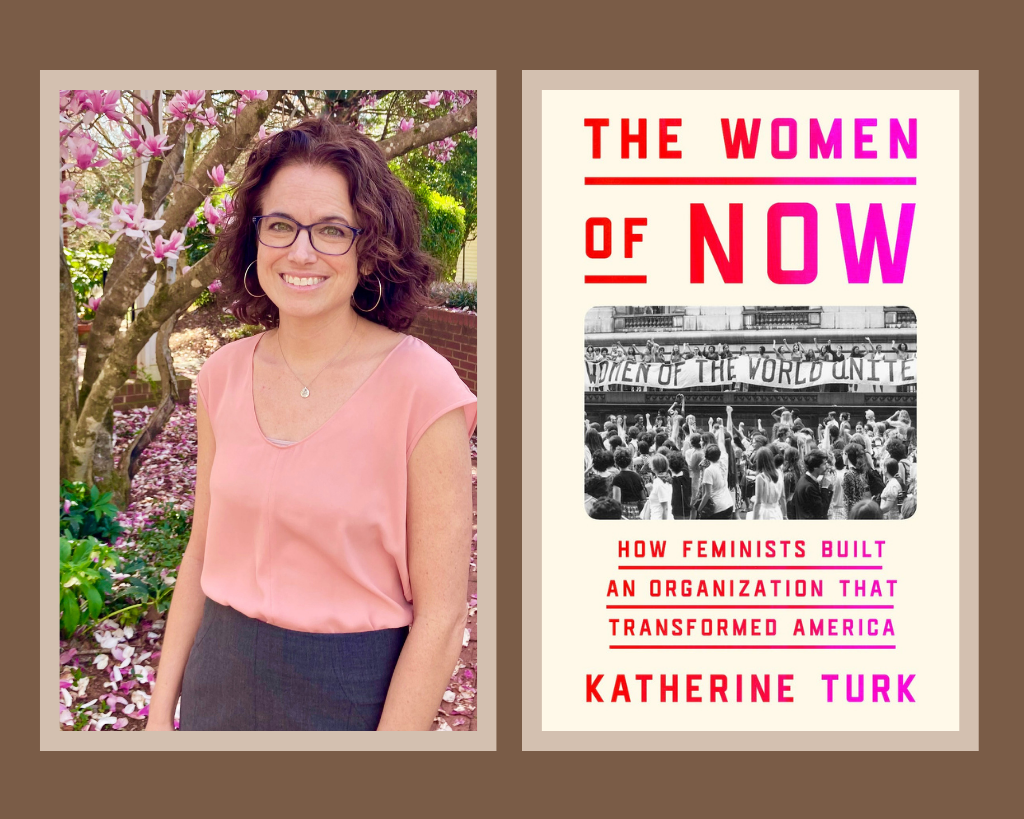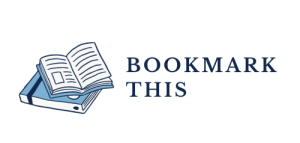EDITOR’S NOTE: THIS Q&A FEATURE HIGHLIGHTING KATHERINE TURK’S BOOK WAS ORIGINALLY PUBLISHED IN NOVEMBER 2023. WE ARE RESHARING IT AGAIN IN MARCH FOR WOMEN’S HISTORY MONTH.
Bookmark This is a feature that highlights new books by College of Arts and Sciences faculty and alumni, published the first week of each month. This month’s featured book is The Women of NOW: How Feminists Built an Organization that Transformed America (The Macmillan Group) by Katherine Turk.
 Q: Can you give us a brief synopsis of your book?
Q: Can you give us a brief synopsis of your book?
A: In 1966, a diverse group of activists founded the National Organization for Women (NOW) to build “a civil rights movement to speak for women.” The group sought to change the mainstream, but its core was a radical idea: that one organization could appeal to and advocate for all women and their male supporters. The Women of NOW is the first full account of the largest and most expansive feminist membership organization in American history. Over the decades, NOW’s leaders and members built undeniable momentum that changed American law, politics and culture. But NOW’s mass appeal and open-ended blueprint also galvanized new opponents. By foregrounding NOW in the past half-century of American history, The Women of NOW reveals how mainstream feminism transformed the nation, clashing with conservative forces to create today’s social and political landscape.
 Q: How does this fit in with your research interests and passions?
Q: How does this fit in with your research interests and passions?
A: Since taking my first college courses in women’s history 20 years ago, I have been convinced that women’s perspectives and experiences, in all their complexity, are central to the American story. Although the academic field of women’s history has existed for a half-century, there is still a great deal to learn. Much historical scholarship and popular media still treat women as lesser characters when they are included at all. The people we choose to center in our explorations of the past reflect whom we value today. I remain as motivated as ever to press the case that women’s history is American history.
Q: What was the original idea that made you think: “There’s a book here?”
A: As I worked on earlier projects, I kept looking for a history of NOW to help me understand the organization: an organization that historians tend to agree was important but one whose essence remained elusive to me. Scholars have often reckoned with NOW’s scale and complexity in pieces — spotlighting specific leaders, chapters or campaigns — or freezing at its founding moment. The organization’s own archive supports this segmented approach, for its leaders and members have left millions of pieces of paper in archives across the country. The more I read about NOW, the more questions I had. I decided to visit those archives and try to answer those questions myself.
Q: What surprised you when researching/writing this book?
A: I was surprised by just how many diverse people came to NOW and kept coming over the decades, inspired by its premise to represent and advocate for all women. My research pointed me beyond the more familiar founders, who erected NOW’s skeleton out of their belief that women were oppressed as a class and had to fight back together. It was their successors who tested whether this idea could work. Those newer members stretched NOW in different directions and as far as they could. Their cohort was vast, but The Women of NOW spotlights three women who represent the broad range of identities and feminist visions that members brought to NOW starting in the late 1960s: Jamaican-American federal official Aileen Hernandez, working-class Catholic Mary Jean Collins and Republican artist and former beauty queen Patricia Hill Burnett.
Q: Where’s your go-to writing spot, and how do you deal with writer’s block?
A: As a working parent juggling many roles, I write wherever I can — in various comfortable chairs in my house, in my campus office, in my car between meetings, even in partially-formed ideas typed into my phone’s Notes app. And reading primary source material and other scholars’ work is an essential piece of writing. I find that if I can squeeze in a few hours to read and write every day, the words keep flowing. But if I do get stuck, a walk outside tends to shake ideas loose.
Katherine Turk is an associate professor in the department of history and adjunct associate professor in the department of women’s and gender studies. Learn more about The Women of Now.
The Guardian writes “As Turk deftly guides her readers through NOW’s roller coaster of victories and defeats, we come away with a clear blueprint for change — replete with cautionary tales — as we face new challenges to women’s freedom and equality.”
Nominate a book we should feature by emailing college-news@unc.edu. Find previous “Bookmark This features” by searching those terms on our website, and add some books to your reading list by checking out our fall ’23 College magazine books page.
